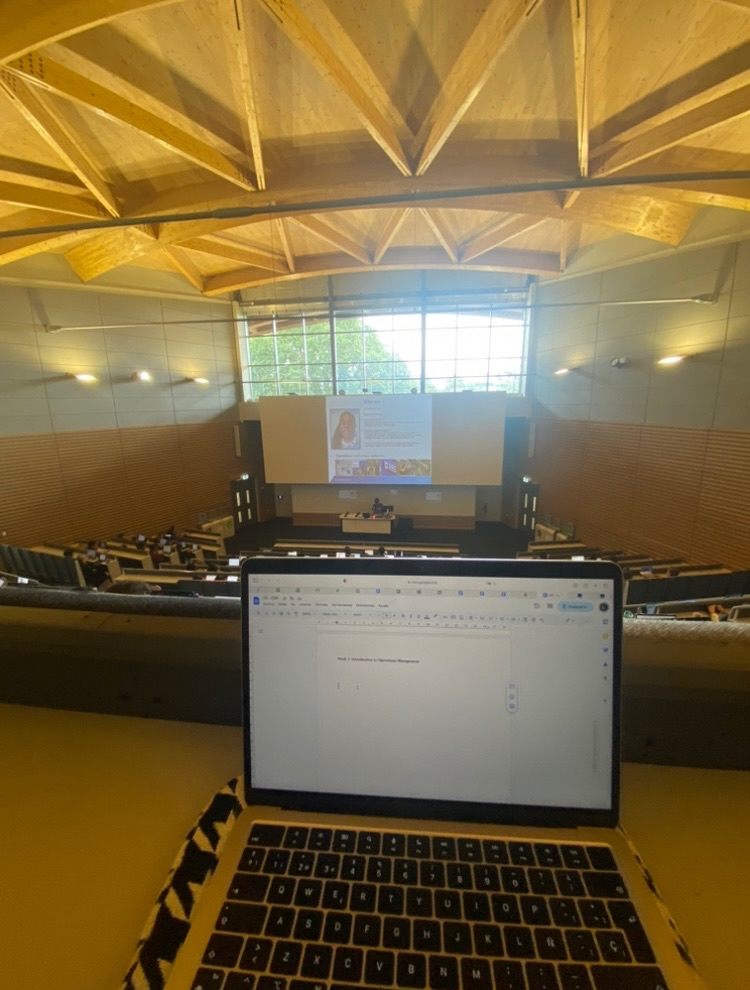University can be overwhelming and has numerous challenges, especially when moving away from home for the first time, nevertheless, it is a once-in-a-lifetime opportunity; it provides a foundation for making long-lasting friendships, learning more about your desired profession, and developing your personal growth. To help you get the most out of your university experience, I’ve compiled a list of ten tips based on my own personal experience as a second-year student at university that I wish I’d known sooner.
1. Embrace Diversity:
Initially, university campuses are vibrant hubs of diversity. Embracing this diversity is not just about acceptance; it’s about actively engaging with the different cultures, ideas, and perspectives surrounding you – broadening your horizons and gaining insights into different worldviews. Therefore, joining clubs, and societies, and attending events tailored to various interests, is a good idea to explore and take advantage of your new surroundings fully. This can serve as an opportunity to make new friendships and gain a deeper understanding of global issues. For example, joining the salsa society not only offers the chance to learn a new dance, but provides a platform for cultural exchange and appreciation too. Similarly, attending French language classes not only broadens your linguistic skills, but opens doors to understanding different cultures and perspectives.

2. Manage your time wisely:
The transition to university marks a newfound sense of freedom, but with freedom comes responsibility. Balancing academic pursuits, extracurricular activities, and social engagements can sometimes feel like juggling multiple hats at once. To help with this, developing effective time management skills is essential. I would recommend crafting a personalised schedule that allocates time for studying, attending classes, participating in extracurriculars, and relaxation at the beginning of the academic year. Set realistic goals and deadlines, breaking down large tasks into smaller, more manageable chunks. By mastering the art of time management, you not only enhance your productivity, but also reduce stress and prevent the dreaded last-minute rush.
3. utilise university resources:
One of the most significant advantages of university life is the vast array of resources at our disposal. From academic support services to career counselling, libraries and fitness facilities. Don’t hesitate to tap into these resources whenever you encounter challenges or seek opportunities to grow personally and professionally. Whether it’s seeking academic guidance, refining your career goals, or simply finding a quiet corner to study, university provides a supportive ecosystem to nurture your aspirations.

4. stay organised AND BUDGET:
Mastering budgeting is a crucial skill for first-year university students transitioning into financial independence. I would suggest starting your year by creating a budget, tracking your spending, and setting realistic goals. The first month at university could be used as a test to better understanding your spending routines. Prioritise essential expenses, take advantage of student discounts, and use credit cards responsibly. Seek financial aid and support when needed, and plan for emergencies by building an emergency fund. By implementing these strategies early on, you can navigate your finances with confidence and pave the way for a successful academic journey with minimal stress.
5. Attend Lectures and Tutorials:
While the temptation to skip lectures or tutorials may be strong, consistent attendance is key to academic success. These classes are so important to deepen your understanding of course material, clarify concepts, and engage in enriching discussions with peers and professors. Even more so, active participation not only demonstrates your commitment to academic excellence but also allows you to gain insights that may not be captured in textbooks/lecture slides, and following this you can ask questions. Therefore, when it comes to the exam, you can fully understand the theories and subjects brought up and can prioritize revision rather than learning. Going to university is expensive – don’t waste the opportunity.

6. Foster Relationships with Professors:
Your professors are more than just instructors; they are mentors, guides, and sources of inspiration. Building meaningful connections with them can open doors to opportunities for intellectual growth and professional development. Seek their guidance, ask questions, and express your academic interests and aspirations (university is not like school, if you need help, you need to seek it). By fostering these relationships, you not only gain access to invaluable insights and advice but also cultivate a supportive network that can propel you towards success.
7. Get Involved in Extracurricular Activities:
Beyond the realm of academics, extracurricular activities offer numerous opportunities for personal and professional growth. Dive into the rich extracurricular life on campus, exploring avenues that align with your interests and passions. Amidst the diverse array of extracurricular offerings on campus, I would recommend specifically delving into sports societies. Here, I’ve discovered a vibrant and welcoming community that fosters tight-knit friendships while promoting physical activity and well-being. It’s great for your physical and mental health to get involved in hobbies outside of studies, and helps you to make friends too.

8. PrioritiSe Self-Care:
Amidst the hustle of university life, it’s easy to neglect your well-being. However, prioritising self-care is essential for maintaining your physical, mental, and emotional health. Make self-care a non-negotiable priority by carving out time for adequate sleep, nourishing meals, and regular exercise. Take breaks when needed, indulge in activities that rejuvenate your mind and body, and seek support when facing challenges. Remember, your well-being is the foundation upon which your academic success and personal growth are built.
9. Foster a Growth Mindset:
Approach challenges with a growth mindset, viewing setbacks as opportunities for learning and growth. Embrace the journey of self-discovery, celebrating your successes and learning from your failures along the way. Cultivate resilience in the face of adversity, and maintain a positive outlook as you navigate the twists and turns of your academic journey. Embrace the process of continuous improvement, believing in your capacity to evolve and thrive in the face of challenges. By cultivating a growth mindset, you not only unlock your full potential but also embark on a transformative journey of self-realisation and personal growth.
10. Stay Curious and Explore:
Lastly, university is a crucible of exploration and discovery, offering boundless opportunities for intellectual curiosity and personal growth. Embrace the spirit of exploration by venturing beyond your comfort zone. Take courses that challenge your assumptions, attend guest lectures that expand your horizons, and seize internships or study abroad opportunities that offer new perspectives. By embracing the unknown and embracing the unfamiliar, you not only broaden your horizons but also uncover hidden talents and passions that propel you towards a brighter future.
I trust that these 10 tips serve as valuable guideposts as you embark on your first year at university. However, beyond the academic and practical aspects, I urge you to prioritise enjoyment and fulfilment throughout your university journey. This period of life is a unique chapter filled with unparalleled experiences and opportunities for growth. Good luck and enjoy the ride!



